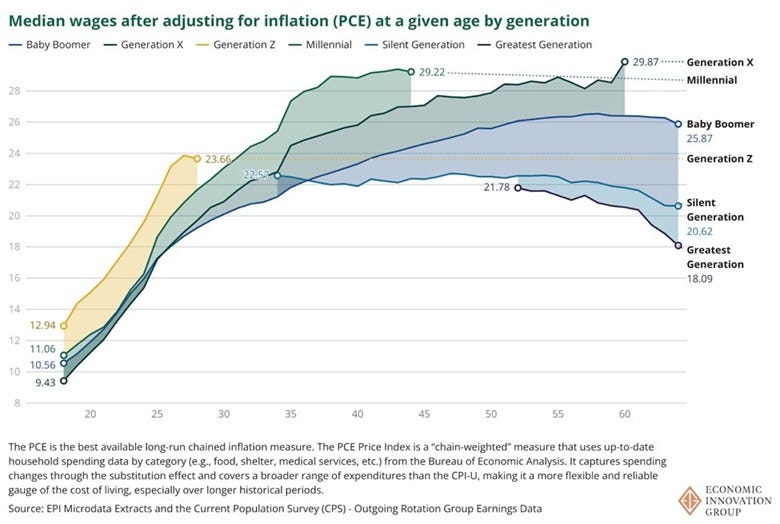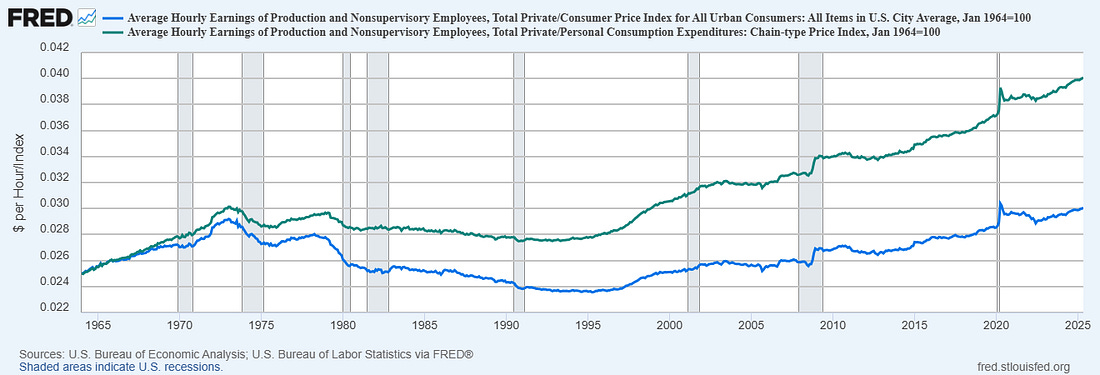|
At least five interesting things: It Isn't That Bad edition (#66)
U.S. wage growth; fertility and sexism; construction costs and house prices; the next financial crisis; macroeconomics vs. microeconomics;
 |
Wow, I just realized it’s been a long time since I did a roundup! I hope I haven’t gotten rusty.
First, podcasts. I went on the Big Technology podcast to talk about AI taking jobs, and why humanity could end up being just fine no matter how good AI gets:
Is AI Really Taking Our Jobs? — With Noah Smith Big Technology Podcast |
A few weeks ago, I went on the WhoWhatWhy podcast with Jeff Schechtman, to discuss the economy:
The American Economy: Coasting on Fumes but Built to Last WhoWhatWhy's Podcasts |
And finally, here’s an episode of Econ 102, in which Erik and I talk about the revolution China is creating in physical technologies:
China, Tesla, and the Electric Tech Stack Revolution Turpentine |
Anyway, on to the list of interesting things!
1. American wages really have gone up
For years, we’ve been deluged with charts and rhetoric and memes about how American wages haven’t gone up for decades. Bernie Sanders, for instance, regularly claims that wages are lower than they were 50 years ago. Is it true, though?
No. The basis for this claim is one particular data set: average hourly earnings for production and nonsupervisory workers in the private sector, divided by the consumer price index. That measure of wages was indeed lower in 2019 than in 1973. But if you use the PCE price index instead — which measures the changes in the prices of what people actually consume, rather than what they used to consume in the past — you see a very different story:
This is enough to show that the U.S. economy as a whole is delivering wage growth (though less than we’d like, of course). But what we really care about on a personal level, when it comes to wage trends, is probably some combination of two questions:
How much do a typical person’s wages increase over time?
Do young people make more than their parents did at a similar age?
Ben Glasner of the Economic Innovation Group has a great chart that allows us to see the answer to those two questions in a nutshell:
 |
We can see that every American generation’s income, except for the Silent Generation, has risen strongly over the first two decades of their working life. We can also see that Gen Xers started earning



